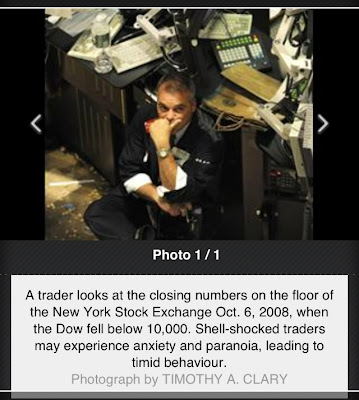A
Cushing’s friend of mine recently asked what we can say to our doctors to
explain why we think we have Cushing’s. The Cushing’s community knows
that the burden of proof falls on our shoulders to prove we have Cushing’s to a
doctor, before tests are run and even after positive tests confirm it. These doctors play judge and we Cushing’s
patients must prove beyond a reasonable doubt that we have Cushing’s, often in
the hostile setting of doctor’s office after doctor’s office. Seems harsh?
Seems unfair?
Doctors are taught in medical school that they are unlikely to see a case of
Cushing’s in their entire medical careers. In fact, doctors admit that Cushing's may be the most difficult diagnosis to make in all of medicine. Sigh. So we walk in, prepared as our Cushie friends
have recommended and armed with symptoms
list, photo summary, and past lab results. Doctors are still incredibly
dismissive and cruel. They blame the patient for their weight gain, regardless
of exercise or dietary habits. They routinely dismiss all points the patient
makes. Many doctors eagerly counter
every point and spout facts that are incorrect according to published medical
literature.
So what
are we supposed to do? Give up? No.
We keep fighting no matter what.
To that
end, I wanted to share the argument I have used for a long time on several
occasions. In fact, I just used this during my appointment with a new neurosurgeon this past Friday.
*******
In statistics, we learn the concept of probability. Probability is the chance that something will happen - how
likely it is that some event will happen. With each variable added, we decrease the
probability that each one of those things can occur together at the same
time.
Think of the elusive, rare Cushing's diagnosis
as a slot machine with 7 wheels. Each wheel is labeled with nice fruit images
and contains one of the following:
· all Cushing's symptoms
· high urine cortisol
· high ACTH
· positive IPSS
· MRI showing pituitary tumor
Now spin
the wheel. For a Cushing’s diagnosis, each wheel must land on
the diagnostic criteria for Cushing’s listed above.
What is
the likelihood that all of those things are going to "hit" and line
up for the jackpot?
It is
not probable. In fact, the odds are stacked against you to have all those
things line up like they do. For us Cushing's patients, THEY DO LINE UP. WE DO
HAVE ALL THOSE THINGS CONFIRMING CUSHING'S. It is a RARE occurrence, and it
doesn't happen often, but people do spin the wheels on a slot machine and line
up all the wheels to win. For us, of course, Cushing's is a HUGE loss -- no win
at all.
Now,
let’s take a gander at what the diagnosing slot machine would have to look like
for me to get my Cushing’s diagnosis, since my doctors require multiple high
test results in each of the testing categories.
 |
To confirm my Cushing's diagnosis, it would take
28 slot machines with 5 wheels and all 140 wheels
landing on Cushing's. Guess what? They did. Lucky me. |
· many Cushing's symptoms (75 wheels for each of my Cushing's symptoms)
· high ACTH (4 wheels for each test)
· positive IPSS (1 wheel)
· multiple MRIs showing
pituitary tumor (3 wheels)
Now
then, based on my lab values in each category, for my diagnosis, we have built
a slot machine with 140 wheels. Think of how much space this would take up in a Vegas casino!).
So, let’s imagine me going up to have a seat.
I pull
the arm.
I spin
the wheel.
One by
one, each wheel lands on the picture showing CUSHING’S.
My Cushing’s diagnosis is confirmed. It is
rare, but it is not impossible. Yet, doctors still argue and berate the
patient. You can see why I have very
little tolerance for someone who calls my diagnosis, or any Cushie’s diagnosis,
into question. It is ludicrous, unfathomable, and unconscionable for any
medical professional to doubt us, due to their ignorance, pre-conceived
notions, lack of medical curiosity, or their tight schedule that prevents them
from listening to us and really understanding our whole history. The way
doctors treat Cushing’s patients should be illegal.
My first neurosurgeon told me that in medical
school, doctors are taught to find the one disease that explains everything and
to not accept many "little" diagnoses strung together. It was imperative to find the
diagnosis that captures as many of the symptoms as possible. I implore
the medical community to remember that lesson and do more to help their
patients.
There is no doubt why we Cushing’s patients
are the determined lot we are. We know our own bodies. It is our unrelenting
pursuit for the truth, our unwillingness to give up on ourselves, and our
ability to learn about our disease from those who face its challenges every day
that enable us to fit all the puzzle-piece-diagnoses together in search for our
cure.


